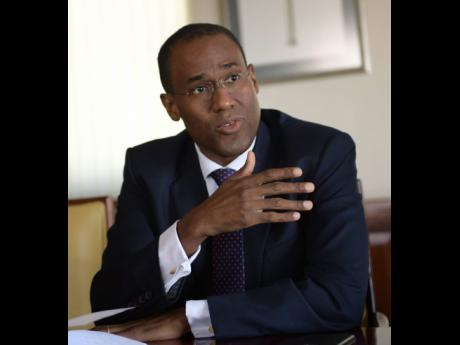Public bodies to pilot test preferential procurement system
The new procurement regime that is meant to give Jamaican suppliers a better fighting chance at winning public contracts will be put to the test, starting this week.
The Public Procurement (Domestic Margin of Preference) Order, a system designed to encourage the participation of Jamaican suppliers in public procurement and increase the capacity of local suppliers to compete for contracts for goods and services will be piloted in a subset of public bodies.
Finance and Planning Minister Dr Nigel Clarke said that based on the success of the piloted public bodies the order will then be expanded to the rest of the public sector.
The bodies engaged in the pilot were not named.
“We want to ensure that any inefficiencies in its application have been sorted out before we roll it out to the rest of the public bodies,” he told the Financial Gleaner.
The Domestic Margin of Preference is the application of a prescribed factor on the bid price of foreign bidders participating in international competitive bidding procedures. The application of that factor allows a national bidder to earn a government contract even if its bid price exceeds the bid price of a foreign bidder by up to 20 per cent, provided that the national bidder demonstrates that its supply will include at least 35 per cent domestic content.
The Trade Board, the entity designated to determine whether the 35 per cent threshold has been met, will issue guidelines as to how to make such a determination, said Minister Clarke.
He adds that not just raw material but also labour will go into the computation of the 35 per cent domestic content.
“Labour is a part of the 35 per cent local input. The determination will be made by the Trade Board, the entity that supplies certificates of origin in trade matters and the same methodology that they use there will be used here, the threshold though being 35 per cent. That will be applied to goods and services,” Clarke said.
He said, for example, that the way in which an entity might measures services provided, say, by a team of consultants, is to ascertain what proportion of the team consists of persons resident in Jamaica.
The same thing would be applicable to materials made in Jamaica.
“We are going to pilot it with a subset of public bodies to ensure that we gather feedback as to how it is working and how we can improve its implementation,” the finance minister said.
The order is applicable to public sector procurement, that is, for personnel at ministries, departments and agencies who have to procure goods and services on behalf of the government.
“It benefits the private sector in that it is the private sector which supplies the government, the largest single purchaser in the economy. The government is taking an approach to public procurement that considers developmental issues as well. While we aim to get the lowest prices we can’t pursue that at the expense of developing our own local capacity,” he added.

